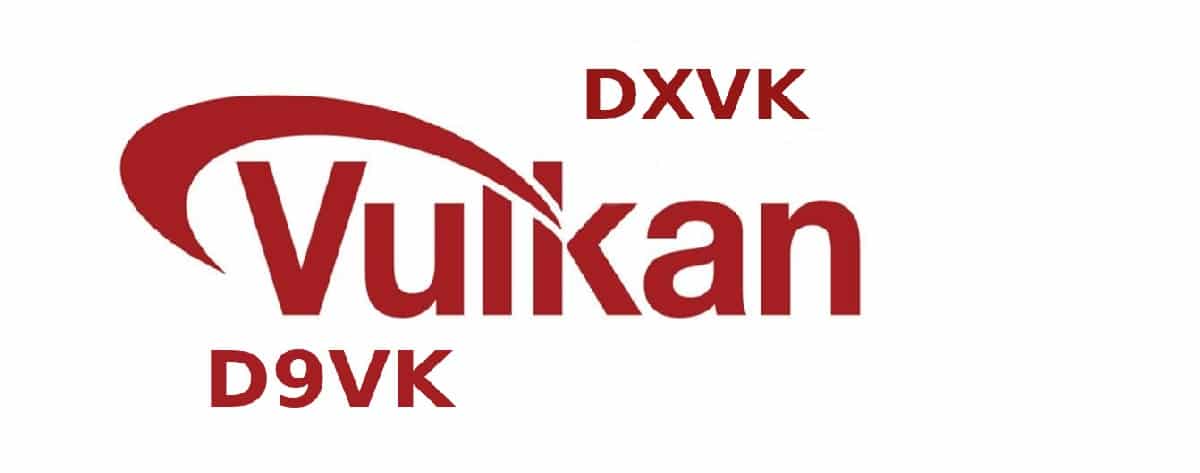
After about 4 months development since the last release, the release of the new version of DXVK 1.9.3 was announced version in which the developers worked to significantly reduce CPU overhead in DirectX games, plus DirectX to Vulkan is progressing and fixing problems, improvements for Mesa, games and more.
For those who still do not know about DXVK, they should know what it is one of the tools included in the Steam Play function from Steam. It is a fantastic tool thate can convert Microsoft DirectX 11 and DirectX 10 graphics calls to Vulkan, the open source graphics API that is compatible with Linux. To use DXVK, in addition to Wine and Vulkan, you obviously need a Vulkan-compatible GPU.
While DXVK is mainly used on Steam Play, but it is not the only place where Linux users can take advantage of this fantastic technology. It also contributes the Vulkan-based D3D11 implementation for Linux and Wine, Regarding performance and optimization when running Direct3D 11 games on Wine, as they also provide support for Direct3D9.
Main new features of DXVK 1.9.3
In this new version that is presented of the implementation, it is highlighted that when using dxvk-nvapi, (an implementation of NVAPI) in addition to DXVK, support is provided for DLSS technology, which allows you to use Tensor cores from NVIDIA graphics cards to scale realistic images using machine learning methods to increase resolution without losing quality.
In addition to taking into account the Vulkan VK_EXT_robustness2 extension, D3D9 shading constants have been optimized and the old options for games that use software vertex processing have been removed.
It is also noted that one or more was addedenable option for some games to provide more accurate emulation of the floating point behavior D3D9. Enabling this option eliminated problems in Red Orchestra 2, Dark Souls 2, Dog Fight 1942, Bayonetta, Rayman Origins, Guilty Gear Xrd, and Richard Burns Rally.
In addition, problems with Microsoft DirectX graphics infrastructure (DXGI), which previously often interrupted the full screen mode of various games and caused graphical anomalies, have been fixed according to the official release notes and also fixed a problem in DXGI that caused a crash when trying to activate full screen mode on some screens.
On the other hand, in current titles like Crysis 3 Remastered performance has been increased, The latest Euro Truck Simulator and Splinter Cell: Chaos Theory benefit from the Vulkan implementation update.
Finally if you are interested in knowing more about it About this new release, you can check the details In the following link.
How to add DXVK support to Linux?
DXVK can be used to run 3D applications and games on Linux using Wine, acting as a higher-performance alternative to Wine's built-in Direct3D 11 implementation that runs on OpenGL.
DXVK requires the latest stable version of Wine to run. So, if you don't have this installed. Now we will only have to download the latest stable package of DXVK, this one we found In the following link.
wget https://github.com/doitsujin/dxvk/releases/download/v1.9.3/dxvk-1.9.3.tar.gz
After having made the download now we are going to unzip the package just obtained, this can be done with from your desktop environment or from the terminal itself by executing in the following command:
tar -xzvf dxvk-1.9.3.tar.gz
Then we access the folder with:
cd dxvk-1.9.3
And we execute the sh command to run the install script:
sudo sh setup-dxvk.sh install
setup-dxvk.sh install --without-dxgi
When installing DXVK in a prefix of Wine. The advantage is that Wine vkd3d can be used for D3D12 games and DXVK for D3D11 games.
Also, the new script allows the dll to be installed as symbolic links, making it easier to update the DXVK to get more Wine prefixes (you can do this via the –symlink command).
How will you see the folder DXVK contains two other dlls for 32 and 64 bits these we are going to place them according to the following routes.
Where "user" you replace it with the username you use in your Linux distribution.
For 64 bits we put them in:
~/.wine/drive_c/windows/system32/
O
/home/”usuario”/.wine/drive_c/windows/system32/
And for 32 bits in:
~/.wine/drive_c/windows/syswow64
O
/home/”usuario”/.wine/drive_c/windows/system32/